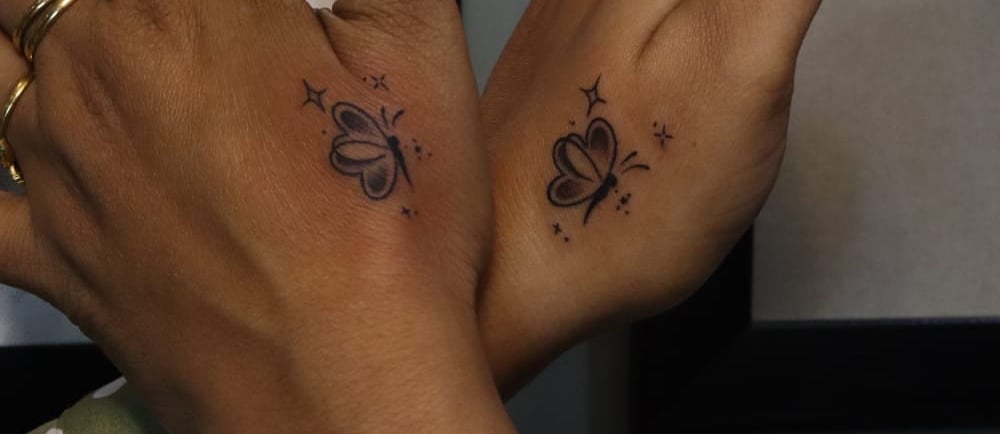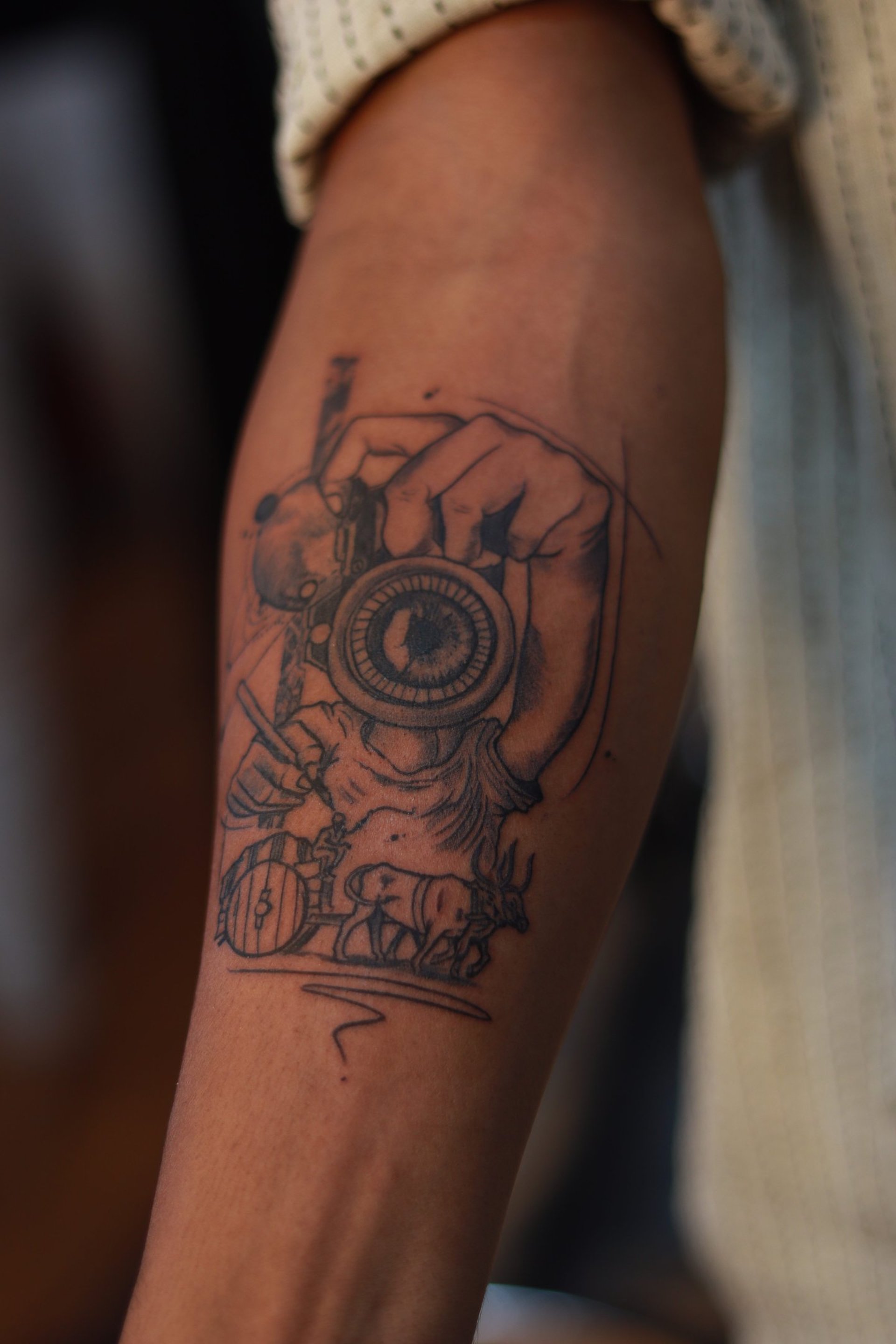Tattoos & Health Myths | Drugs, Alcohol & Blood Donation
Can you donate blood after a tattoo? Do drugs or alcohol affect tattoos? Discover the truth behind common tattoo myths and medical facts.
Nagarjuna(Dudo)
9/7/20253 min read


Tattoos, Drugs, Alcohol & Blood Donation – Myths vs Reality
Tattoos often attract myths, not only about health but also about lifestyle and behaviour. Some believe tattoo artists or clients must be into drugs or alcohol. Others think alcohol reduces pain. Many even worry that tattoos will permanently stop them from donating blood. These myths create confusion and fear, but the truth is very different. Let's separate fact from fiction.
Myth: Tattoo Artists and Clients Use Drugs
There is a belief that people with tattoos, or artists who create them, are drug users, not serious in life, and unprofessional. This is wrong. Professional tattoo studios do not allow clients under the influence of drugs.
If someone is high on drugs, they cannot sit in one place, converse properly, or make decisions clearly. Tattooing requires hours of sitting still, enjoying the process, and working with the artist. If either the client or artist is high, this process is impossible. That is why good studios reject clients who are high and ask them to return later when sober.
Myth: Alcohol Reduces Tattoo Pain
Some artists or friends might say, "Have a drink before your tattoo, it will hurt less." This is dangerous advice.
Alcohol increases blood pressure and thins the blood. Even if an artist has 50 years of experience, the ink will not deposit properly if the client has alcohol in their system. Instead of staying inside the skin, the ink pushes out with the blood. This ruins the tattoo result.
The truth: never drink alcohol before or while getting a tattoo. If you want a tattoo that looks good and stays crisp forever, avoid alcohol and drugs altogether.
Tattoo Pain – Truth vs Myth
Pain levels vary across different body parts. Tattoos are not equally painful everywhere.
Most painful areas include the elbows, spine, ribcage, feet, skull, and neck — these places have less flesh, which is why pain is higher.
Less painful areas include the arms, shoulders, thighs, and other fleshy areas.
Remember, tattoos last forever. Over the decades, ink pigments slowly break down due to aging, lifestyle changes, and skin loosening. Tattoos may blur slightly after 50–60 years, but they do not disappear completely.
Myth: You Cannot Donate Blood After Tattoos
This is one of the most common myths. Many people who donate blood regularly worry that tattoos will disqualify them forever. That is not true.
According to current medical law, you must wait 5–6 months after getting a tattoo before donating blood. There are two main reasons:
Window Period of Infections: Diseases like Hepatitis or HIV may not appear in blood tests immediately. They can take 6 months to one year to show up. During this time, your blood may seem safe, but it still carries risk.
Ink Quality Issues: Some cheap inks contain metals or unsafe chemicals. If artists purchase low-cost inks without conducting research, they risk causing allergies, reactions, or blood safety issues.
After the waiting period, tattooed people can donate blood safely. The rule is for protection—not permanent rejection.
Why Blood Donation Rules Exist
When people get tattoos or piercings, there is always a slight chance of infection if hygiene is not perfect. That's why medical authorities don't accept blood donations immediately. The six-month waiting period ensures any possible infection is detected before donation.
It is not about tattoos being unsafe by themselves—it's about giving the body and testing systems enough time.
Tattoos, Drugs, and Professionalism
Another myth is that tattoos and professionalism cannot go together. But think about this: a sleeve tattoo can take 18–20 hours. A client has to sit patiently under the needle for that long. Enduring that pain, making that decision, and following through shows strength and discipline.
If someone can tolerate hours of tattooing, they can also sit and work professionally for eight or more hours a day. Tattoos don't reduce professionalism—they often prove it.
Client Spotlight: Dudo's Tattoos, Hyderabad
At Dudo's Tattoos & Piercing In Kukatpally, Hyderabad, clients are always advised to avoid drugs and alcohol before a tattoo. The studio follows strict hygiene and only uses premium, safe inks that match global standards. This ensures tattoos heal properly and don't create issues for future blood donation.
The team also educates clients about pain levels, aftercare, and blood donation rules. Their priority is safety, professionalism, and quality service—not shortcuts.
Final Thoughts
Tattoos do not mean someone is into drugs, alcohol, or irresponsible living. Good studios reject clients who are high and focus only on sober, safe tattooing. Alcohol does not reduce pain—it ruins tattoos. Pain levels depend on body placement, and blood donation is possible again after 5–6 months.
By choosing a professional studio that uses safe inks and follows hygiene rules, you can enjoy your tattoo without worry. Tattoos are not just art—they are a commitment. Studios like Dudo's ensure that commitment is safe, professional, and long-lasting.
Also Read : Tattoo Aftercare Tips | Dudo's Tattoos Client Care Guide

Dudo's is the best custom tattoo studio in Hyderabad.
Piercings that elevate your fashion statement.
Studio Timings:
All Days, 11 AM - 10 PM
Contact Us
© 2025. Dudo's Tattoos and Piercing. All rights reserved.
Quick Links
Address : 10/11, 3rd Phase, 4, Kukatpally Housing Board Rd, opposite to HOLY MARY DEGREE COLLEGE, LIG, KPHB 5th Phase, Kukatpally, Hyderabad, Telangana 500072
We are experts in
Geometric Tattoos
Travelers Tattoos
Lord Ganesha Tattoos
Coverup Tattoos
Realistic Tattoos
Pet tattoos
Eyebrow Piercing
Navel Piercing
Septum Piercing
Piercings
Lip Piercing
Cartilage Piercing
Multiple Ear Piercings
Gunshot Ear Piercing


